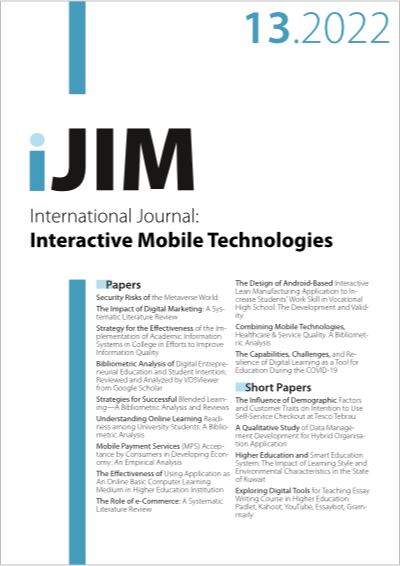Mobile Payment Services (MPS) Acceptance by Consumers in Developing Economy: An Empirical Analysis
DOI:
https://doi.org/10.3991/ijim.v16i13.30615Keywords:
mobile payment system (MPS), attitude, subjective norms, intention, perceived usefulness, perceived ease of use, perceived security, individual mobility, compatibilityAbstract
Today’s world is technology-oriented, and the use of mobile devices is imperative for individuals to keep pace with the modern lifestyle. This paper aims to determine the causes that formulate a consumer’s choice to adopt mobile payment technology in an underdeveloped economy. Data is collected through an online questionnaire from a sample drawn from a population determined through a statistical database. Structural Equation Modeling (SEM) was employed to test the conceptual framework with the assessment of measurement and structural model. The software used is SmartPLS version 3.0. The results of data analysis show that even in the presence of perceived security risk, customers show a tendency to engage in mobile payment systems based on strong relationships among perceived ease of use and perceived usefulness with attitude towards the use of MPS. The results point out a strong affinity for mobility, compatibility, and subjective norms in mobile technology acceptance.
Downloads
Published
How to Cite
Issue
Section
License
Copyright (c) 2022 Muhammad Hassan , Siti Falindah Padlee, Sheikh Muhammad Zahid , Muhammad Ali , Shahid Ali Khawaj

This work is licensed under a Creative Commons Attribution 4.0 International License.



